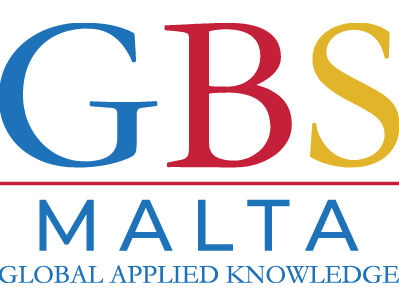Yes, Malta offers various affordable accommodation options for students. Students can find choices that fit their budget, from shared apartments to private rooms, ensuring a comfortable stay during their studies.
Basic calculation of the cost of living in Malta

As a student new to Malta, you must be well prepared, both mentally and practically about your finances. Leaving home to study overseas can be challenging for many students, but Malta is a welcoming place which will offer you a range of rewarding experiences.
Living costs for students in Malta are more affordable than in many other European countries. This makes Malta an especially attractive destination for those pursuing education. On average, a single person can expect to spend around 785.0€ per month in general living expenses. This excludes rent and accommodation, which make up a major part of the cost of living in Malta.
Notably, the cost of living in Malta is 17.2% lower than in Ireland. This means it is a more affordable option for students willing to come to Malta and study. Malta offers a cost-effective living environment for students (compared to other EU countries).
Budget-Friendly Stay & Education!
Types of cost of living in Malta
Here is a guide to understanding the expenses you will incur on your academic journey besides your education costs in Malta.
1. Utilities:
When it comes to utilities such as electricity, water, cooking fuel and internet, the estimated monthly cost is relatively reasonable. You can allocate around €100-150 per month for these essential services and have a comfortable standard of living. It is important to stay mindful of energy consumption to keep a check on utility costs within a fixed budget.
2. Groceries:
Malta sources its food supplies from Italy and neighbouring regions by sea routes, which makes them quite expensive. Monthly grocery costs for a single person in Malta amount to around €200-250. So managing food costs is essential. You can opt for local markets and buy seasonal produce to save more. You can also choose to cook at home and prepare meals in bulk, allowing you to maintain a nutritionally balanced and cost-effective diet.
3. Other essential living costs:
Beyond accommodation, utilities and groceries, transport, health insurance and miscellaneous expenses must be factored in as additional living expenses. Public transport in Malta is relatively affordable. You can invest in a student discount card to save money. Health insurance is mandatory for international students and the cost varies based on coverage. For flexibility, keep aside a small budget for such expenses and manage unforeseen financial needs effortlessly.
Making a career move with GBS Malta
GBS Malta is an education provider offering several master’s, bachelor’s and ‘award-in’ courses in business and management, IT and study skills. We have strong connections with employers, offer personalised academic and career guidance and specialised courses and we are able to provide our students with support all the way through their academic journeys. GBS Malta is a licensed Higher Education institution approved by the Malta Further & Higher Education Authority (MFHEA). Our courses align with the Malta Qualifications Framework and the European Qualification Framework.
Accommodation at GBS Malta:
We have a range of accommodation options for our students. Depending on your budget and personal preferences, you can make your selection and have a comfortable stay here in Malta. Here is a table to give you an idea of what we offer at our Campus Hub Residence:
| Accommodation Type | Features | Low season price (€/week) | High season price (€/week) |
| Single room (private bathroom) | Calm atmosphere, contemporary rooms | 285 | 320 (26th May - 8th Sept) |
| Twin room (private bathroom) | Calm atmosphere, contemporary rooms | 205 | 240 (26th May - 8th Sept) |
| Shared apartment (shared bathroom) Close to school | Proximity to GBS Malta, local hotspots | 175 | 195 |
| Single room in shared apartment Close to school | Proximity to GBS Malta, local hotspots | 300 | 320 |
Note:
- Prices are in Euros per week.
- Low season refers to the autumn to spring period, while high season prices are applied from 26th May to 8th September.
- A €150 deposit for shared apartments is required to be paid at the school.
We guarantee a happy stay if you choose to sign up for our accommodation at GBS Malta. On campus, we offer a range of facilities to make your time here comfortable and convenient.
- The 24-hour reception ensures support whenever you need it.
- You'll find a range of food and retail outlets at your doorstep.
- The shared (cluster) kitchen is a great option for those who enjoy cooking.
- You can enjoy the pool and gym facilities for relaxation and fitness.
- Our study and lounge areas are designed to cater to your academic and social needs.
- Based on the type of accommodation you choose, essential amenities like toiletries, a washer, dryer, iron, ironing board, Wi-Fi, are provided, so no need to worry about the basics.
- For additional convenience, essential shops are also within reach.
- A refundable deposit of €150 is required at the residence.
- Check-in and check-out days are available on Sundays or Saturdays.
To simplify your arrival, you can pre-book an airport transfer for €35 one way (airport to accommodation). GBS Malta provides all the facilities and services to make your stay enjoyable and hassle-free.
How to manage expenses wisely as a student in Malta

By now you’ve understood the basic types of cost of living in Malta that you need to incur apart from your educational costs. Here are some tips to keep in mind to manage your expenses in a better way.
- Budgeting: Create a monthly budget outlining fixed expenses and discretionary spending.
- Part-time employment: Explore part-time job opportunities. GBS Malta has flexible study options, allowing you to work while you study.
- Student discounts: Apply for student discounts on public transport, events and other services.
- Explore scholarships and grants: Research and apply for scholarships or grants. Connect with team GBS Malta for more guidance on the Get Qualified Scheme.
The cost of living in Malta for international students is reasonable and offers a unique blend of cultural experiences and educational opportunities. By breaking down the cost of living in Malta into various sections as discussed above, you can have a smooth academic journey. If you plan wisely, you can minimise the cost of living in Malta and make the most of your studies while enjoying the beauty of this Mediterranean island!
Frequently Asked Questions about the cost of living in Malta
1. Are there any affordable accommodation options available for students in Malta?
2. What are the rental housing options available for students in Malta?
Students in Malta can opt for various housing options. The diversity in choices caters to different preferences and budgets.
3. Can students benefit from discounts on public transport in Malta?
Yes, students in Malta can enjoy discounts on public transport, making it an affordable and convenient way to travel around the islands.
4. What are some money-saving tips for students living on a budget in Malta?
To save money in Malta, students can explore local markets for groceries, take advantage of student discounts, cook at home and use public transport. Additionally, pre-planning and budgeting help in managing expenses effectively.
5. What is the commonly used payment method in Malta?
Many outlets, including department stores, will take card transactions in Malta. But it is best to also carry cash, just in case.

